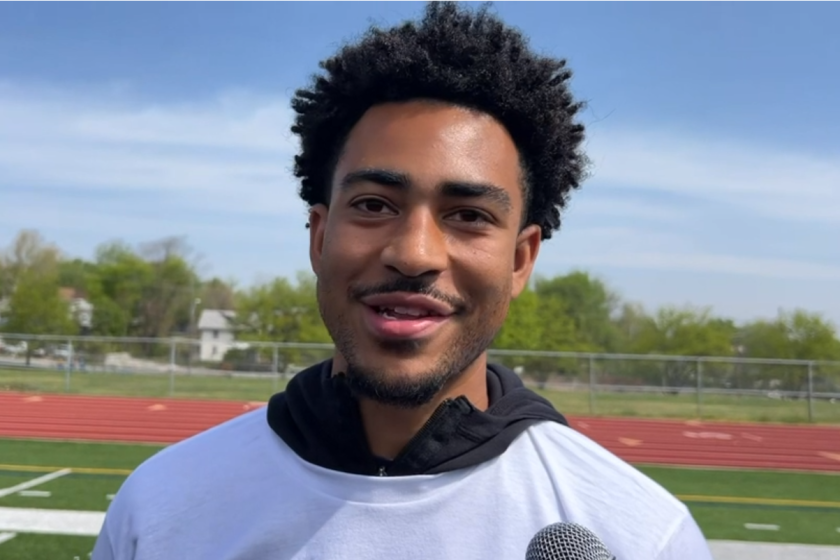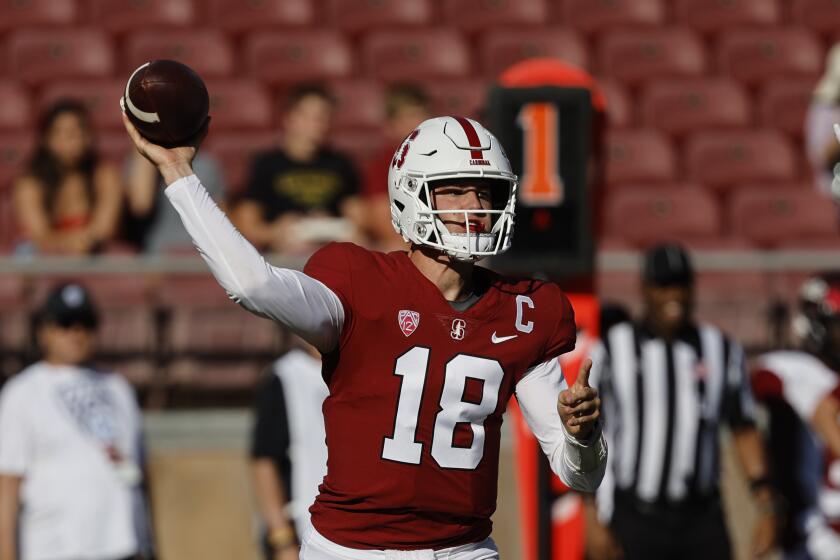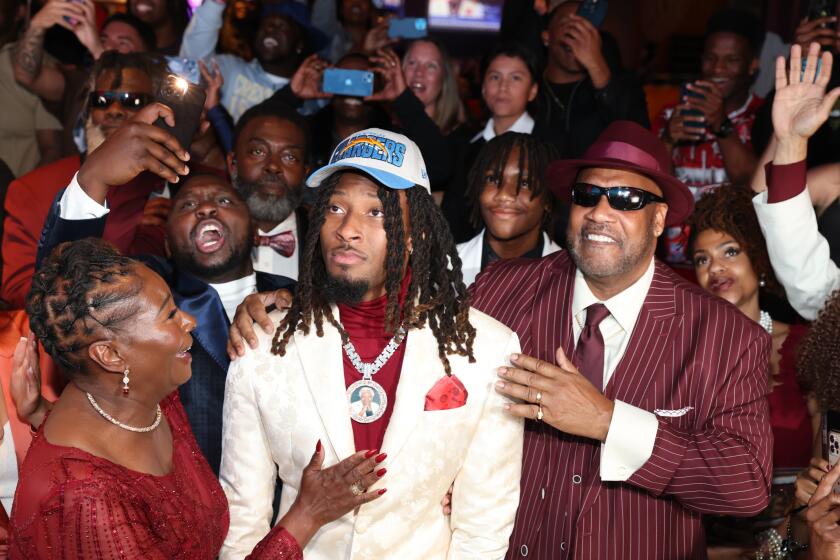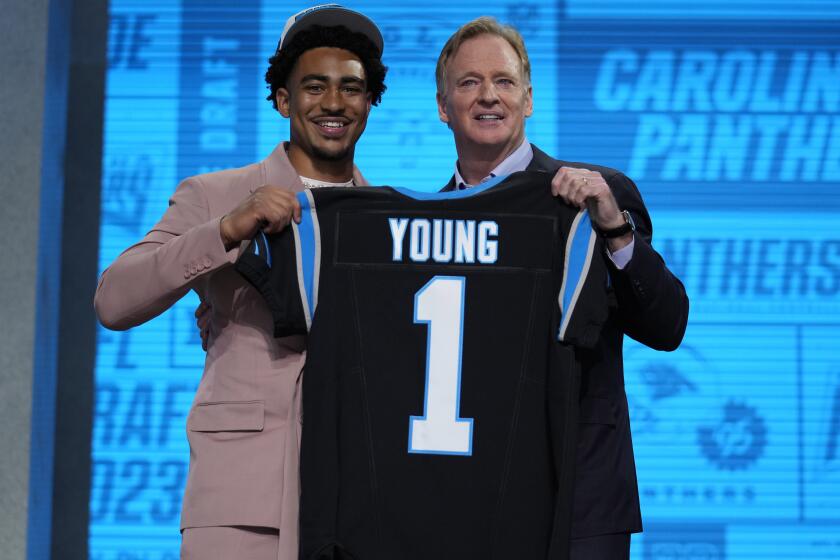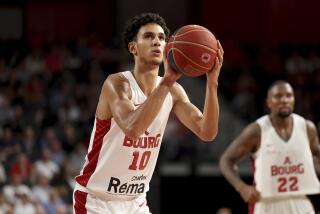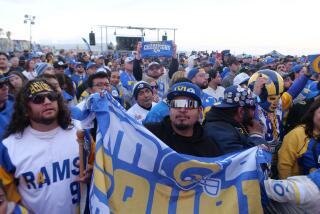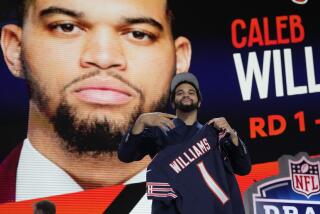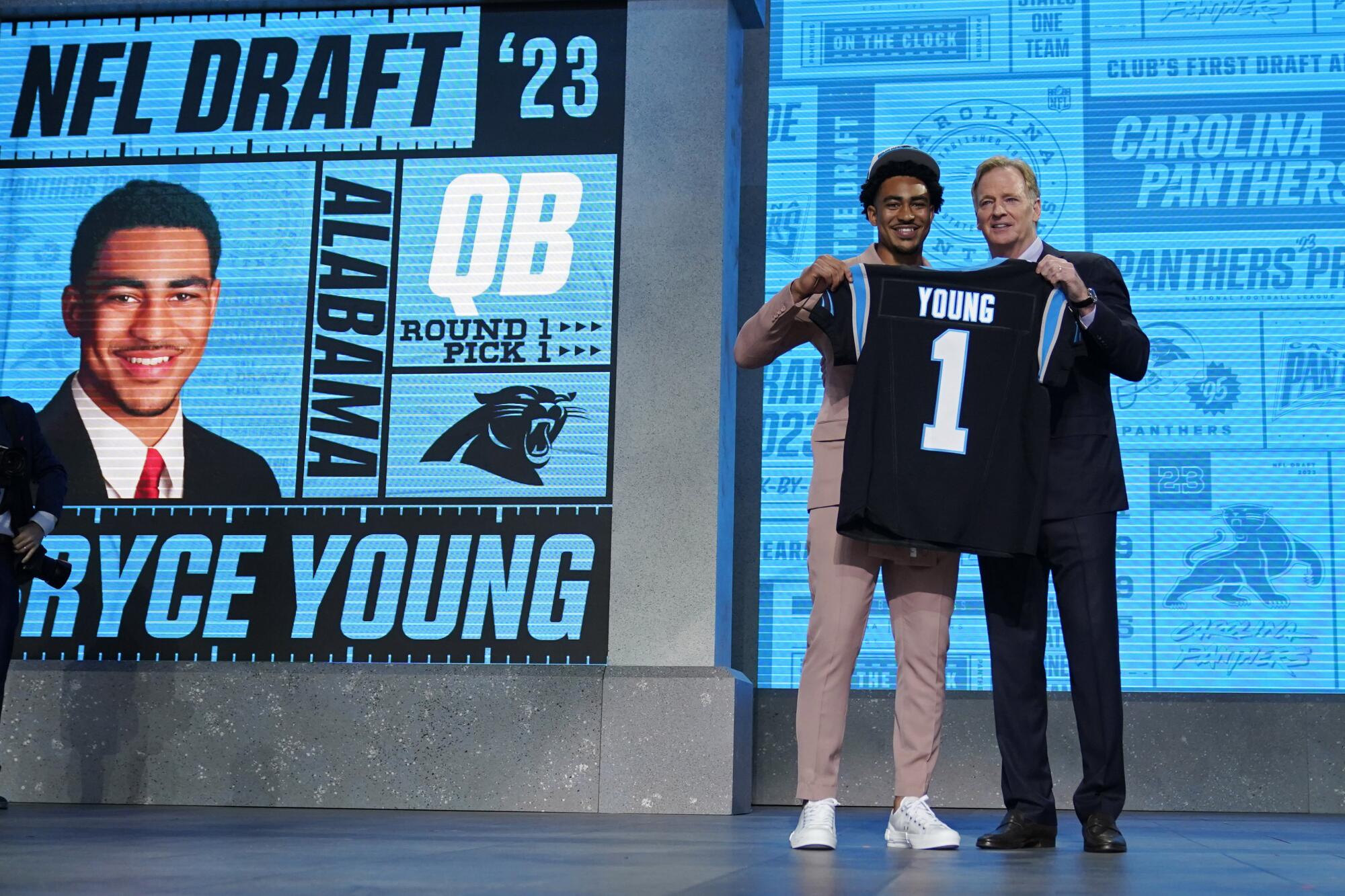
- Share via
KANSAS CITY, Mo. — Bryce Young and C.J. Stroud have been friends and competitors since eighth grade, two quarterback prodigies growing up in Southern California.
On Thursday night, they were the one-two punch to kick off the NFL draft.
Alabama’s Young was the top pick of the Carolina Panthers, and Ohio State’s Stroud went No. 2 to the Houston Texans.
“Whenever there’s a pressure situation, I look at that as an opportunity,” said Young, the 2021 Heisman Trophy winner who played at Cathedral High in Los Angeles and Mater Dei in Santa Ana. “It’s fun to be in those situations. That’s what we all dream of.
Two of the top NFL draft 2023 quarterback prospects, Bryce Young and C.J. Stroud, relive moments when they met on Southern California football fields as kids.
“Whatever the expectations, I want to take things day by day. But I am super blessed for this organization to take a chance on me.”
There was speculation that Stroud might slip down the draft board, but the Texans had other ideas. They grabbed him with the No. 2 pick, then traded right back up to take Alabama pass rusher Will Anderson at No. 3.
Stroud, who played at Rancho Cucamonga, became the highest-drafted Ohio State quarterback, surpassing Art Schlichter, chosen fourth by the Baltimore Colts in 1982.
“I know that it’s meant to be,” Stroud said. “I know that with this franchise it’s going to be something that I’m really going to take very, very seriously, and I’m going to work my tail off to get some wins.”
On a night when two running backs went in the first 12 picks — unusual for a league so focused on passing — there was an unprecedented stretch of four wide receivers in a row coming off the board. The last of those was USC’s Jordan Addison, selected 23rd by the Minnesota Vikings.
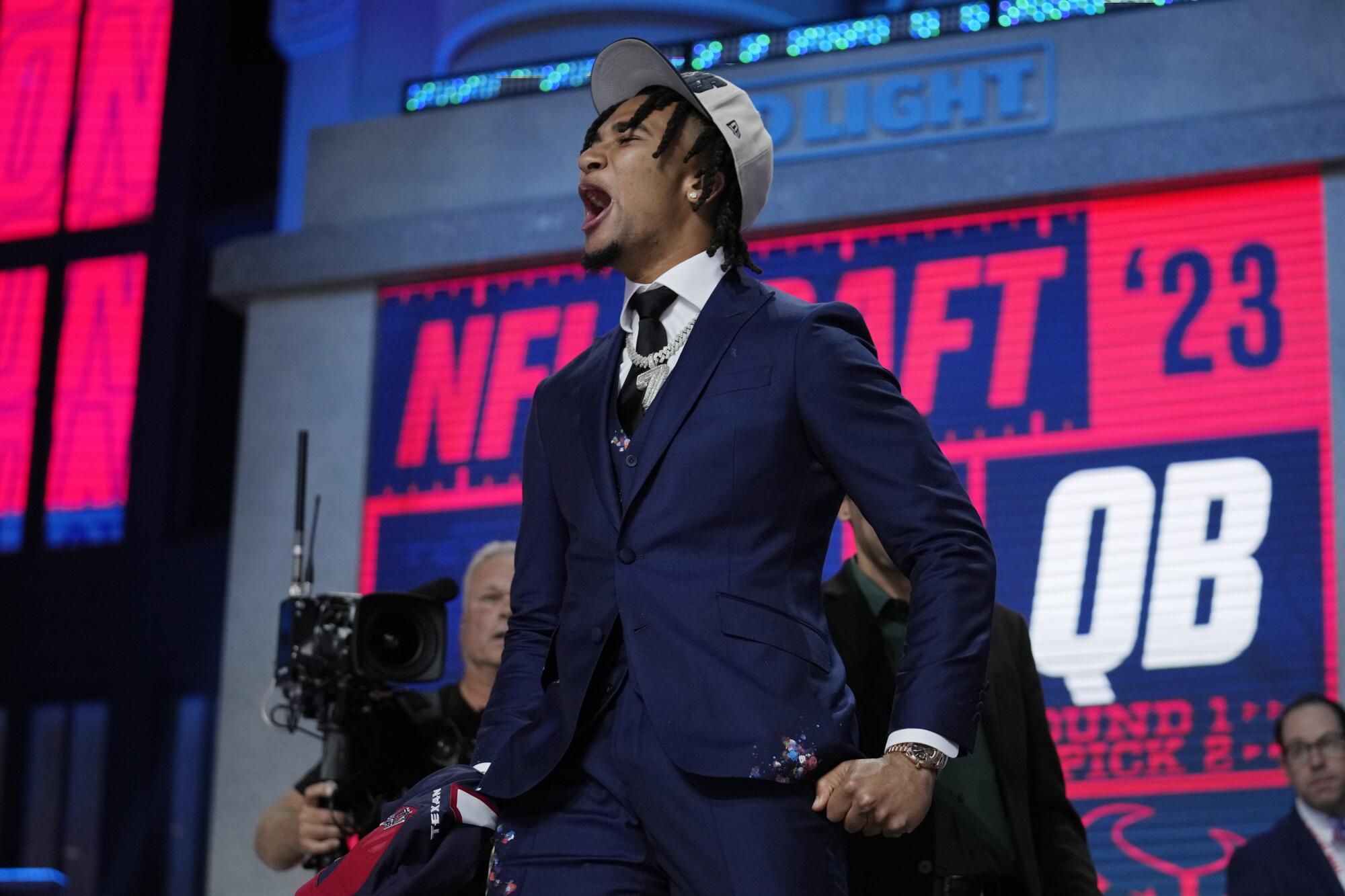
Addison joins a Vikings passing attack that includes All-Pro receiver Justin Jefferson and had four players who caught at least 60 passes last season.
“I’m just going to add that explosiveness,” Addison said. “I’m probably built a little bit differently than the previous receivers [in Minnesota], so it’s a little bit different style that I’m going to bring.”
The Chargers took a receiver in that flurry, using the 21st pick on Texas Christian’s Quentin Johnston.
The Rams, who haven’t had a first-round selection since taking quarterback Jared Goff first overall in 2016, are on the clock at 36, five picks into Friday night’s second round.
With Matthew Stafford only quarterback on roster, the Rams are likely to pick at least one in the NFL draft. Question is, in what round and who makes sense?
Kansas City, playing host to the draft for the first time, did it in a big way. The footprint of the draft complex is a record 3.1 million square feet, more than a million square feet larger than the last two drafts, at Cleveland and Las Vegas.
The NFL estimated attendance at 125,000, and the draft is routinely among the most-watched television events in the spring, even when competing with the NBA and NHL playoffs.
Two big quarterback questions were answered in the 48 hours before the draft.
The New York Jets completed their trade with Green Bay for Aaron Rodgers, and — a mere two hours before the opening pick — the Baltimore Ravens announced they had reached a five-year deal with Lamar Jackson that will pay him an average of $52 million a year.
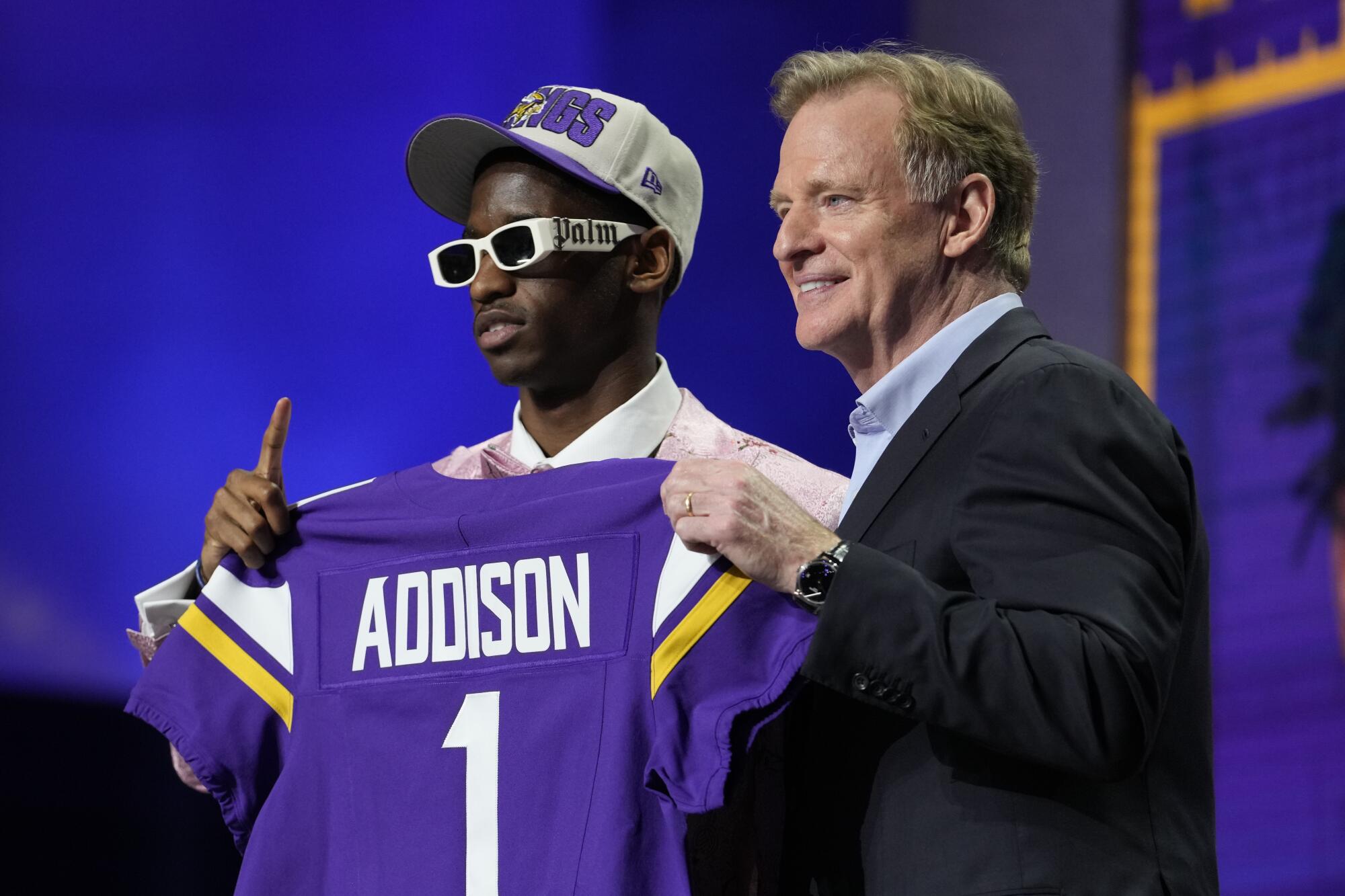
That makes Jackson the league’s highest-paid player, and it meant the Ravens didn’t have to find their most important position among these soon-to-be pros.
As it was, three quarterbacks were chosen in the first four picks, with Indianapolis taking Florida’s Anthony Richardson at No. 4.
Left waiting in the green room was Kentucky quarterback Will Levis, who languished all night waiting for his name to be called.
The defending NFC champion Philadelphia Eagles bolstered their defense with two highly touted Georgia Bulldogs. They traded up one spot to take Jalen Carter at nine, and got outside linebacker Nolan Smith at 30. The Eagles already led the NFL in sacks last season, and somehow they were able to land two players widely projected to go among the first 10 picks.
Whereas the Packers kept alive their trend of not taking a receiver in the opening round — instead they selected Iowa defensive end Lukas Van Ness — the Seattle Seahawks went against type, taking a receiver in the first round (Ohio State’s Jaxon Smith-Njigba) for the first time in 22 years. To the perpetual dismay of their quarterbacks, the Packers extended their streak of not taking a receiver in the opening round to 21 years.
The Chargers addressed their offense Thursday in the first round of the NFL draft, taking Texas Christian wide receiver Quentin Johnston at No. 21.
The Pittsburgh Steelers, who used the 14th selection on Georgia tackle Darnell Wright, have the first pick in the second round.
Rounds 2 and 3 are Friday and 4 through 7 are Saturday.
There were only 31 selections in the opening round, as the Miami Dolphins were docked their pick as a penalty for tampering.
The Carolina Panthers kick off the 2023 NFL draft by selecting quarterback Bryce Young at No. 1. Here’s a recap of all 31 picks from the first round.
More to Read
Go beyond the scoreboard
Get the latest on L.A.'s teams in the daily Sports Report newsletter.
You may occasionally receive promotional content from the Los Angeles Times.

